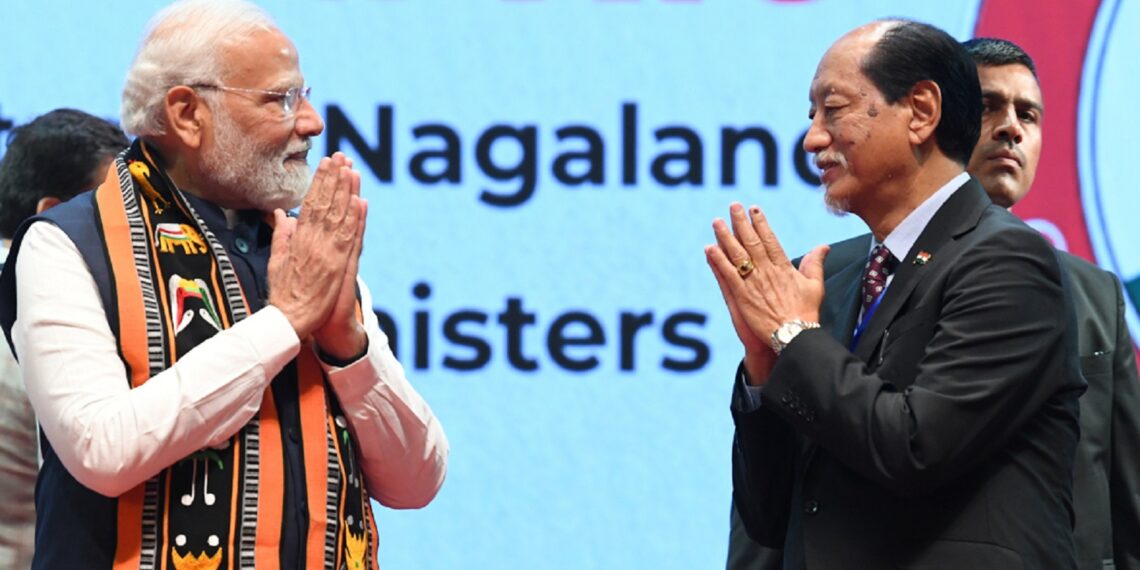KOHIMA: Amid growing concerns and debates surrounding the Uniform Civil Code (UCC), a resolution regarding Nagaland’s stance on UCC is anticipated today.
On Monday, members of the Nagaland Legislative Assembly (NLA) moved to secure Nagaland’s exemption from its purview.
During the second session of the 14th NLA on Monday, discussions floated the idea of a resolution against the UCC. However, Chief Minister Neiphiu Rio clarified, “We cannot confront the Centre with our resolutions, nor protect other states through them.” He, however, suggested, “Instead of opposing or objecting the UCC, we should push for an exemption for Nagaland.”
Acknowledging the urgency of the matter, Rio highlighted a prior cabinet decision which conveyed the state’s views to the 22nd Law Commission on July 4. Nagaland, he said, has sought a complete exemption from the UCC, drawing on historical protections from the pre-independence era, notably the Bengal Eastern Frontier Regulations of 1873, the 9-point Agreement of 1947, and the 16-point Agreement. These protections safeguard Nagaland’s “customary laws, social, and religious practices,” he emphasized.
Highlighting that the UCC’s primary objective is to establish a single legal code for personal matters, applicable across all religious and community lines, Rio voiced concerns, stating it “threatens our customary laws, social rituals, and religious practices.”
A consultation on September 1 saw various stakeholders, including representatives of tribal hohos and organisations, express their unanimous opposition to the UCC.
In recent meetings with key Central government figures, including Union Minister for Law and Justice, Kiren Rijiju, and Union Home Minister, Amit Shah, Rio was reassured that the UCC would not be applied to the Scheduled Tribes of Nagaland and the broader Northeast. On his interaction with Shah, Rio conveyed, “I am confident that the Government of India will stand by its commitment.”
The discussion was initiated by MLAs Kuzholuzo Nienu and Dr. Sukhato A Sema. Nienu commented, “We must reject all forms of hegemony and imperialism, which divide and breed distrust.” The assembly saw contributions from prominent members including Dr. Sukhato Sema, KG Kenye, Imkong L Imchen, Dr. Neisatuo Mero, Jwenga Seb, Achumbemo Kikon, KT Sukhalu, Nuklutoshi, and Moatoshi Longkumer.















